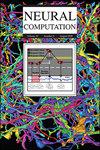卷积神经网络的能量复杂性
IF 2.1
4区 计算机科学
Q3 COMPUTER SCIENCE, ARTIFICIAL INTELLIGENCE
引用次数: 0
摘要
卷积神经网络(CNN)硬件实现的能效对其在低功耗移动设备中的广泛应用至关重要。最近,人们提出了许多方法,将卷积神经网络的能耗优化映射到不同的硬件加速器上。这些方法估计的能耗与具体的实现细节和硬件参数有关,因此无法独立于机器探索 CNN 的能耗措施。在这封信中,我们介绍了一种简化的 CNN 理论能耗复杂度模型,该模型仅基于两级内存层次结构,可近似捕捉不同 CNN 硬件实现的所有重要能耗源。在该模型中,我们得出了一个简单的能耗下限,并计算了针对两种常见数据流评估 CNN 层的能耗复杂度,同时提供了相应的能耗上限。根据统计测试,我们提出的理论能耗上下限与 Simba 和 Eyeriss 硬件平台上 CNN 实现的实际能耗(由 Timeloop/Accelergy 程序估算)在渐近上非常吻合,这验证了我们提出的 CNN 能耗复杂度模型。本文章由计算机程序翻译,如有差异,请以英文原文为准。
Energy Complexity of Convolutional Neural Networks
The energy efficiency of hardware implementations of convolutional neural networks (CNNs) is critical to their widespread deployment in low-power mobile devices. Recently, a number of methods have been proposed for providing energy-optimal mappings of CNNs onto diverse hardware accelerators. Their estimated energy consumption is related to specific implementation details and hardware parameters, which does not allow for machine-independent exploration of CNN energy measures. In this letter, we introduce a simplified theoretical energy complexity model for CNNs, based on only a two-level memory hierarchy that captures asymptotically all important sources of energy consumption for different CNN hardware implementations. In this model, we derive a simple energy lower bound and calculate the energy complexity of evaluating a CNN layer for two common data flows, providing corresponding upper bounds. According to statistical tests, the theoretical energy upper and lower bounds we present fit asymptotically very well with the real energy consumption of CNN implementations on the Simba and Eyeriss hardware platforms, estimated by the Timeloop/Accelergy program, which validates the proposed energy complexity model for CNNs.
求助全文
通过发布文献求助,成功后即可免费获取论文全文。
去求助
来源期刊

Neural Computation
工程技术-计算机:人工智能
CiteScore
6.30
自引率
3.40%
发文量
83
审稿时长
3.0 months
期刊介绍:
Neural Computation is uniquely positioned at the crossroads between neuroscience and TMCS and welcomes the submission of original papers from all areas of TMCS, including: Advanced experimental design; Analysis of chemical sensor data; Connectomic reconstructions; Analysis of multielectrode and optical recordings; Genetic data for cell identity; Analysis of behavioral data; Multiscale models; Analysis of molecular mechanisms; Neuroinformatics; Analysis of brain imaging data; Neuromorphic engineering; Principles of neural coding, computation, circuit dynamics, and plasticity; Theories of brain function.
 求助内容:
求助内容: 应助结果提醒方式:
应助结果提醒方式:


